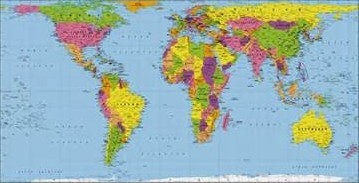When Life is Unfair
QUOFLECTIONS™
ON SPIRITUALITY & ETHICS
“When we meet real tragedy in life,
we can react in two ways–-
either by losing hope and
falling into self-destructive habits,
or by using the challenge
to find our inner strength.”
Dalai Lama
I hurled the ball toward the basket. It struck the left side of the rim. The ball was clearly off target in both distance and accuracy. Nevertheless, it bounced off the rim, struck the backboard and entered the hoop. Two points!
No, this was not a championship game in which the winning shot fell at the buzzer. It was a 7:30 AM workout by a lone player who occasionally shoots hoops before going to work. Still, this shot is remarkable for another reason: perhaps there is insight to be gained from the dumb luck of a poor hurl that is counted just as much as one which elicits the “swish” of a precise shot.
Don’t we also experience random good fortune at times during our daily routine? Can you think of such instances? What else might we be grateful for?
I used to dislike the old-fashioned hymn, “Count Your Blessings.” This ditty’s message to “count them one by one” when faced with life’s traumas seems too simplistic. But perhaps there is value in recalling the unmerited blessings of life: the smile of a child; the beauty of a favorite park; the care shown by a teacher; an unexpected compliment from a friend.
Our blessings may be more than momentary—some last a lifetime. Consider the wonder of two eyes perceiving color, depth, form and motion. Or the marvel of belonging to a species that reads, writes and verbally communicates with signs and symbols. The miracle of the human brain to coordinate these and so many other abilities makes our world’s most powerful computer seem like a Tonka toy. Do we remember these blessings bestowed since birth? Are we grateful?
We often give much more attention to undeserved pain than the unmerited blessings we receive. As someone once asked, “Why is it that the only thing that sticks is complaints?”
Think of all you have suffered! Yes, there are major misfortunes—death, divorce, chronic illness and pain. We are also aware of the many daily instances in which life presents injustices and obstacles: a driver cuts you off, almost causing an accident; your boss criticizes you for a minor mishap as if it will set civilization back a century; or your computer decides to freeze and you lose your last half hour of work (as just happened to me).
We can think of far more instances in which life’s gifts are exceeded by its cruelties. Perhaps the melodic ending of the “Malcolm in the Middle” theme song has it right: “L-i-f-e i-s u-n-f-a-i-r.” The glass really is half empty. Or is it?
How we approach life’s ordeals makes all the difference. Yes, we have always known this. But have we done much about it? Do we nurse negativity when presented with obstacles and injustices? Or do we wisely view obstacles as challenges to overcome? Do we consider that perhaps injustices are invitations to discover what is truly valuable in life?
We need to perceive our blessings—and, yes, count them. Just as a poor shot at a basketball hoop will sometimes score, in many ways we receive much that we have not earned. So it’s not just the injustices which must gain our attention—undeserved beneficence must also be appreciated.
©2003 Harry Rix. All rights reserved.
Related Articles
Living Our Faith
Dating as a Spiritual Journey
Defeating Depression
Perceiving Good Amidst Evil Fosters Hope
Creating Happiness is a Choice

